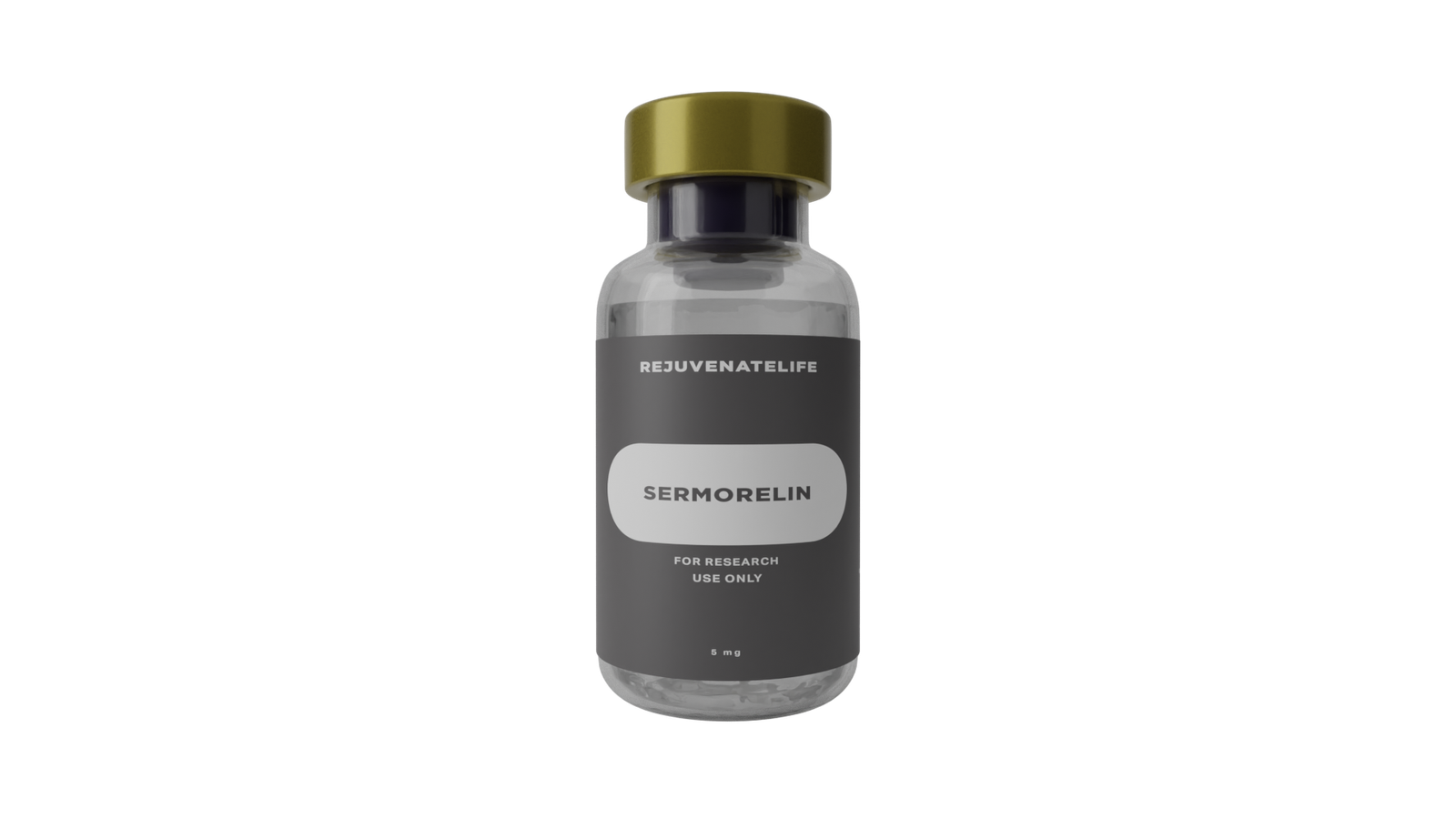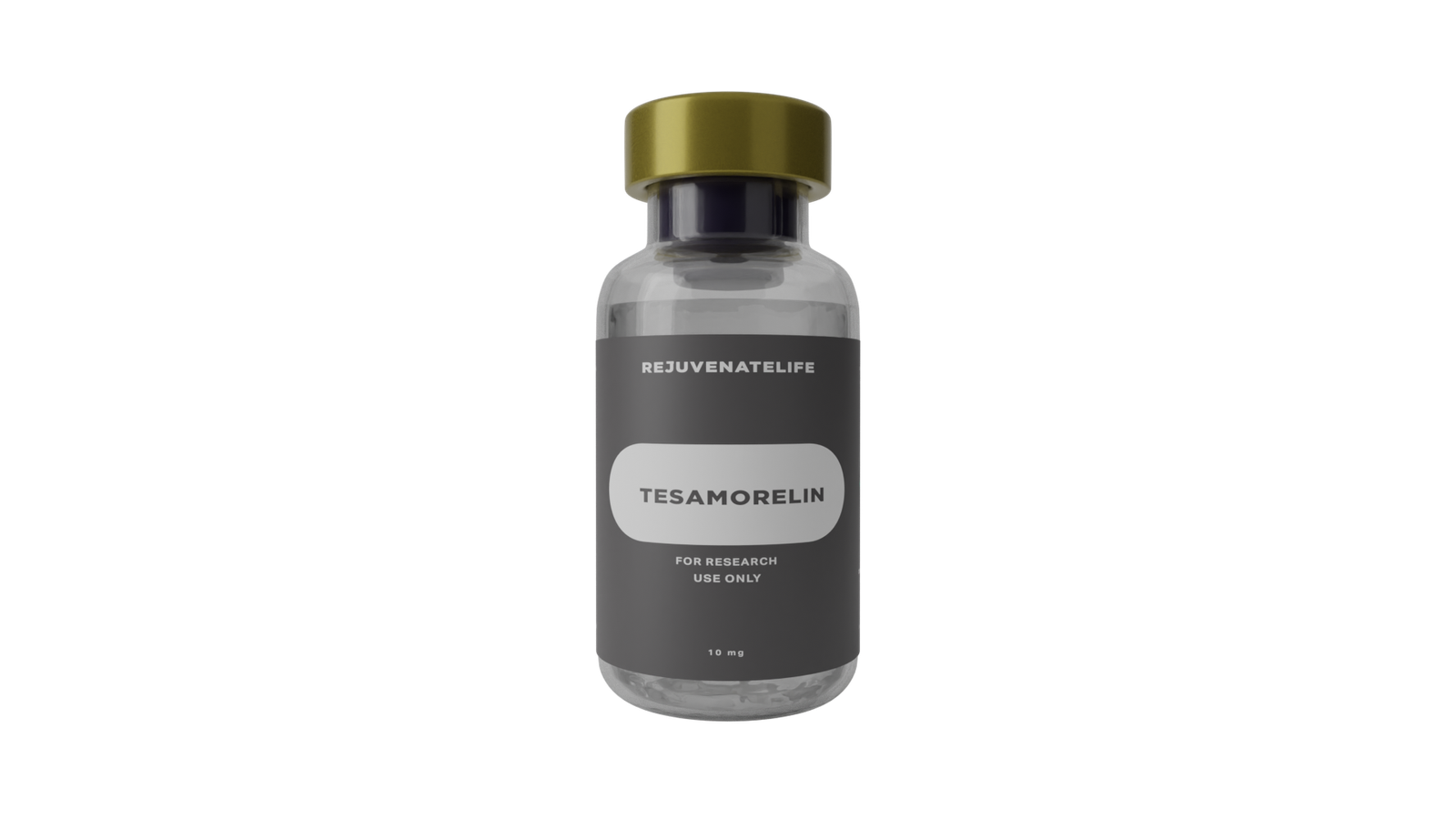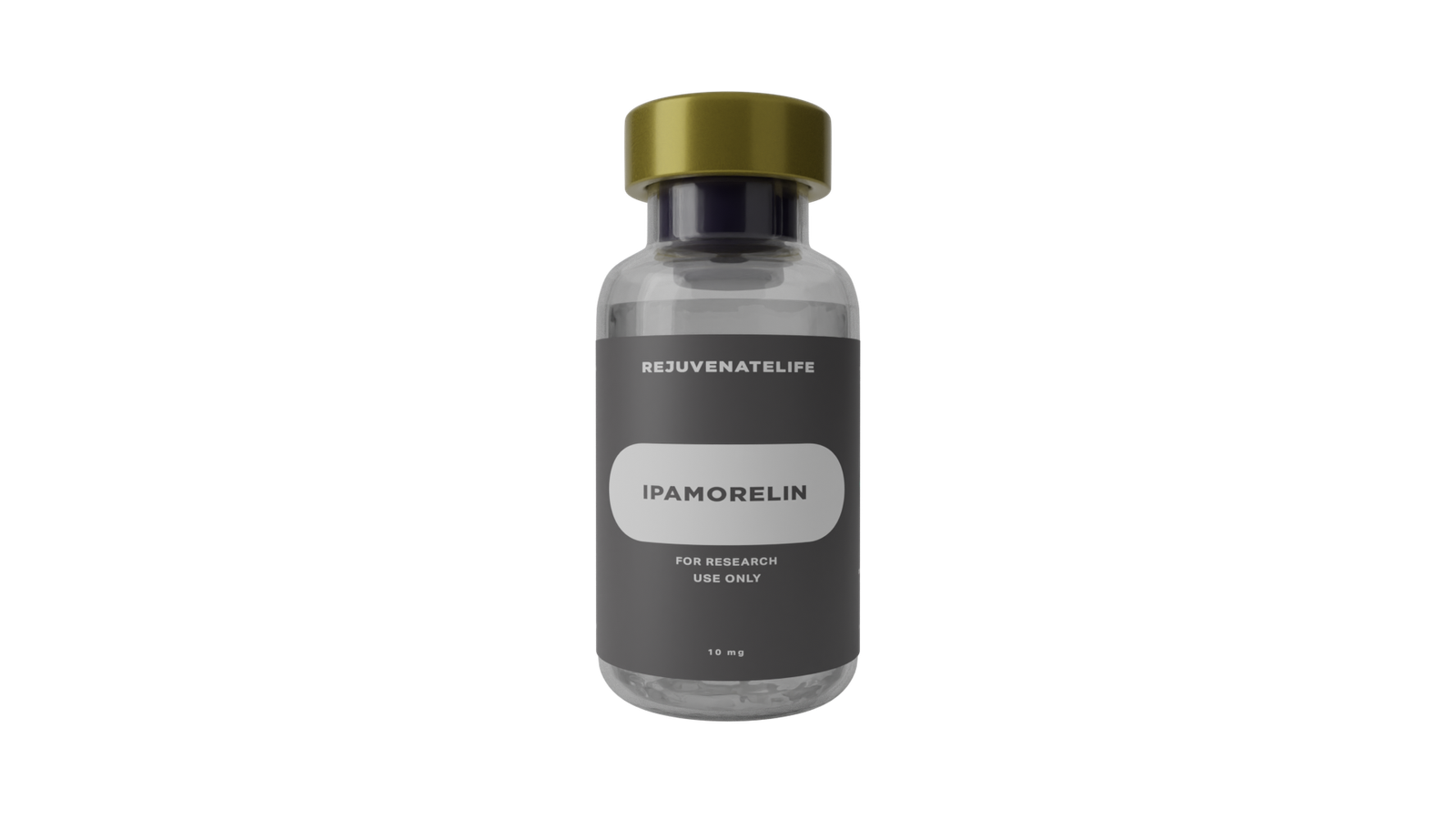Description
Sermorelin is a synthetic analog of growth hormone-releasing hormone (GHRH), consisting of the first 29 amino acids from the naturally occurring 44-amino acid sequence. It is believed to stimulate GHRH receptors in the pituitary gland, promoting the secretion of growth hormone (hGH). Despite its shorter structure, Sermorelin appears to retain the key functions of GHRH, leading to periodic growth hormone release. This process may contribute to increased levels of insulin-like growth factor-1 (IGF-1), which plays a crucial role in the anabolic effects of growth hormone. The estimated half-life of Sermorelin is approximately 11 to 12 minutes.
Potential Benefits and Mechanism of Action
Sermorelin’s specificity for GHRH receptors suggests it does not significantly affect other endocrine markers such as prolactin, insulin, cortisol, glucose, or thyroid hormones. Studies indicate that it may activate complex molecular signaling pathways, including the cAMP-PKA cascade, which could enhance the release and distribution of hGH from pituitary somatotroph cells, further stimulating IGF-1 production.
Research Findings
- Growth and Development: Research on growth hormone deficiency models has shown that Sermorelin administration increases growth velocity, with effects sustained for up to three years.
- Anabolic Properties: Preliminary findings suggest Sermorelin can elevate growth hormone levels by up to 82% over two hours and, in some studies, increase IGF-1 by 28% over 16 weeks. These effects have been linked to gains in lean body mass without changes in fat mass.
- Lipodystrophy: In clinical studies involving HIV-positive individuals with lipodystrophy, Sermorelin increased lean body mass while reducing abdominal visceral fat.
- Cognitive and Aging Benefits: Studies on older adults suggested improvements in cognitive function, particularly in IQ and verbal skills.
- Potential Anti-Tumor Effects: Research on glioma patients indicated Sermorelin may interfere with tumor cell proliferation.
- Hormonal Regulation: Some studies suggest Sermorelin may stimulate FSH and LH release, potentially enhancing testosterone production in men with hypogonadism.
Chemical Composition
- Molecular Formula: C149H246N44O42S
- Molecular Weight: 3357.93 g/mol
- Alternative Name: GRF 1-29
Sermorelin is intended strictly for research and laboratory use.







Reviews
There are no reviews yet.